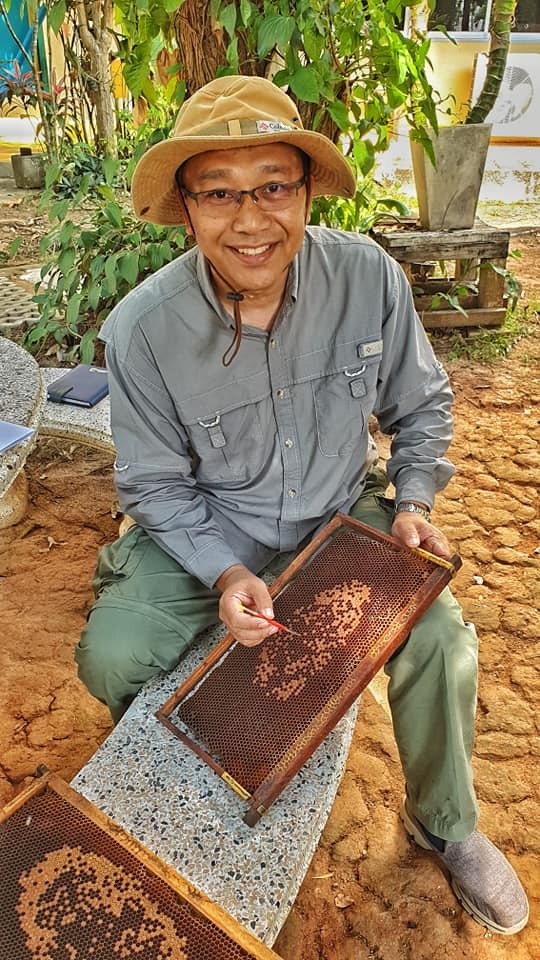
Researcher Spotlight
Wednesday, 21/05/2025
Share This Article :
Prof. Dr Shamsul Bahri Abd Razak obtained his bachelor’s degree in Botany from Universiti Kebangsaan Malaysia (1991) and pursued his Master’s and Doctor of Philosophy (PhD) degrees in Plant Cell Biology at Durham University, United Kingdom (2000).
He began his career in 1991 as a Senior Research Officer at the Rubber Research Institute of Malaysia (RRIM) before joining UMT in 2012.
His current research focuses on the morphology, taxonomy, and behaviour of Indo-Malayan stingless bees and their economic contribution in agriculture and community well-being.
He has led several stingless bee expeditions across Malaysia, Cambodia, Indonesia, and Thailand to document bee specimens. These efforts led to the establishment of the Living Stingless Bee Museum (Repository) in Sekayu and at UMT’s second campus in Bukit Kor, which houses 25 species of stingless bees from the Indo-Malayan clade. This museum is the only living stingless bee museum in the world.
To understand the role of stingless bees in agriculture, he has also conducted palynological studies, by analysing the pollen profiles collected by the bees. Through these studies, pollen profiles and calendars from various locations in Terengganu have been successfully documented.
Prof. Shamsul is also actively involved in community projects, particularly those involving single mothers and underprivileged groups, aiming to improve their socioeconomic status. A project integrating stingless bees into stevia plantations with a community of single mothers in Besut, Terengganu, has successfully produced premium stingless bee honey, scientifically proven to contain the bioactive compound stevioside. This innovative project has won multiple national-level awards. In addition, the integration of stingless bees in rubber plantations has also helped smallholders increase their income through honey production.
He has thus far published 150 scientific journals and eight academic books. Two of these books—Indo-Malayan Stingless Bee Repository in Sekayu (2018) and Kelulutologi (2022)—have won National Book Awards. Kelulutologi has also received several other publishing accolades, including the DPB Book Award (2024) and the MAPIM/KPT Award (2024). His contributions were further recognised with the National Academic Award in 2023.
Prof. Shamsul remains committed to empowering communities through various knowledge-based initiatives, positioning stingless bees as a catalyst for transformation in the agricultural sector and local community economy.
